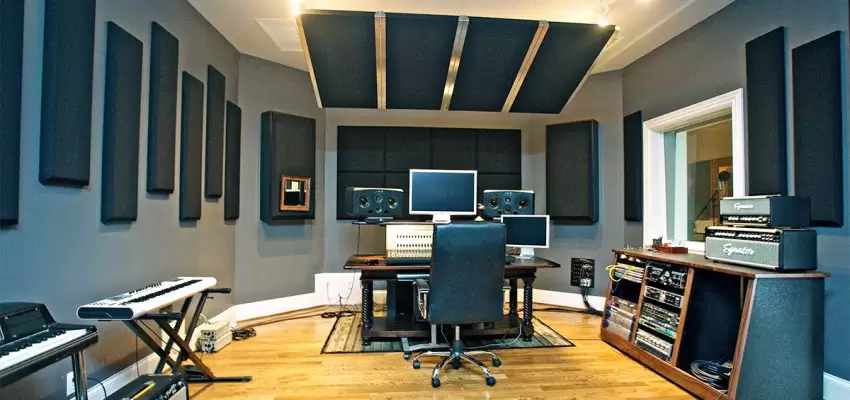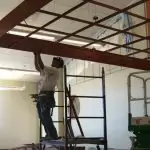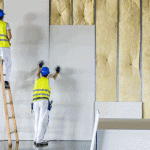An expert in sound and vibration behavior is known as an acoustic consultant. They offer guidance on how to reduce noise and vibration in a variety of settings, including infrastructure projects, buildings, and industrial sites. Experts in acoustics possess a comprehensive comprehension of sound waves’ propagation, reflection, absorption, and amplification in various environments. They make use of this information to manage noise and resolve acoustic issues.
Post your Requirement
Acoustic consultants and acoustic engineers play a crucial role in managing and optimizing sound environments, with responsibilities spanning various aspects of noise and vibration control. One key duty involves conducting comprehensive acoustic surveys to assess existing noise and vibration levels in different environments. Utilizing specialized equipment and techniques, consultants measure and analyze data to identify potential issues and areas for improvement.
These professionals employ advanced computer software to model and simulate noise transmission, aiding in developing effective solutions. Designing and specifying acoustic materials, products, or systems is another vital aspect, of ensuring the implementation of practical and efficient sound control measures. Technical proficiency extends to preparing detailed reports, drawings, and specifications for acoustic elements, facilitating clear communication and implementation of proposed solutions.
Acoustic consultants and soundproofing consultants also serve as advisors to clients, offering insights on compliance with relevant acoustic regulations and standards. From supervising the installation of acoustic materials to commissioning completed designs and noise control solutions, their role involves overseeing the entire process. Recommendations for enhancing noise and vibration conditions in buildings or sites round out their responsibilities, showcasing the comprehensive expertise these consultants bring to create acoustically optimized environments.
| Aspect | Description |
| Profile | Acoustic Consultant |
| Role | Specialized in assessing and optimizing sound environments for various purposes. |
| Primary Responsibilities |
|
| Industries |
|
| Tools and Equipment |
|
| Skills Required |
|
| Qualifications |
|
| Career Progression |
|
| Impact on Environment |
|
| Challenges |
|
This article will explore in more detail what acoustic consultants do in key areas like building acoustics, environmental noise control, and industrial acoustics.
Building Acoustics
Acoustic consultants, and soundproofing consultants building acoustics concentrate on managing sound in buildings such as houses, workplaces, theatres, and movie theatres. Their goal is to design spaces that are cozy, free of distracting noise, and have crystal-clear sound. Important actions consist of:
-
Architectural Acoustic Design
- Work with architects and engineers to design buildings focused on acoustics.
- Model sound behavior using software to simulate room acoustics.
- Recommend acoustic treatments to control echo, reverberation, and ambient noise.
- Design special acoustic rooms like recording studios, concert halls, and cinemas.
-
Noise Control
- Conduct noise surveys to analyze sources of unwanted building noise.
- Design sound insulation measures like walls, doors, and glazed panels.
- Attenuate noise from building services through isolation and vibration control.
- Control exterior noise sources like traffic, aircraft, and neighborhood sounds.
-
Audiovisual Design
- Design suitable audio and video systems for spaces like conference rooms.
- Coordinate integration of audiovisual systems with other building systems.
- Develop control specifications aligned to the client’s functional requirements.
- Commission installed systems to verify acoustic performance criteria are met.
-
Post-Occupancy Evaluation
- Perform acoustic tests after construction to identify any defects.
- Diagnose noise issues flagged by building occupants after moving in.
- Recommend solutions like additional insulation or fine-tuning AV systems.
Environmental Noise Control
Acoustic consultants, acoustic engineers, and soundproofing consultants also work in environmental noise management involving outdoor sound from sources like transportation, construction, and industrial operations. Key tasks include:
- Environmental Noise Impact Assessments.
- Measure ambient noise levels using sound level meters.
- Develop 3D acoustic models showing sound propagation from sources.
- Map noise exposure levels affecting communities near highways, factories, etc.
- Assess impact against permissible regulatory noise limits.
- Suggest noise mitigation strategies adhering to local ordinances.
Transportation Noise Studies
- Conduct road and rail traffic noise modeling and barrier design.
- Analyze aircraft noise patterns for airports using flight path data.
- Design specialized barriers like noise walls, berms, and enclosure roofs.
-
Noise Monitoring and Control Plans
- Design and deploy permanent noise monitoring terminals.
- Develop noise management plans for construction sites/public events.
- Implement systems to continually sample, record, and analyze sound data.
- Generate alerts when set noise thresholds are exceeded.
-
Vibration Analysis and Control
- Measure vibration from rail lines, pile driving, and heavy machinery.
- Model vibration propagation through ground and design isolators.
- Recommend vibration control solutions related to both noise and structural protection.
Industrial Acoustics
Within factories and plants, acoustic consultants, acoustic engineers, and sound proofing consultants focus on protecting employee’s hearing health and improving working conditions. Their expertise covers:
-
Workplace Noise Assessments
- Conduct occupational noise exposure measurements.
- Identify high-noise machinery and processes.
- Compare existing noise levels against permissible exposure limits.
- Design hearing protection zones mapping unsafe noise radiating areas.
-
Machine Noise Enclosure Designs
- Model noise emitted from plant equipment like compressors and generators.
- Design acoustic enclosures, barriers, or insulation around machines.
- Include suitable ventilation and access openings in enclosure designs.
-
Equipment Procurement Specifications
- Set sound power or emission limits for new machinery purchases.
- Compare vendor equipment data against own workplace noise targets.
- Reject equipment likely to be excessively noisy in service.
-
Noise Management Plans
- Produce facility mapping showing noise measurement data.
- Formulate plans detailing engineering/admin controls for noise.
- Specify personal protective equipment provision and usage policies.
- Outline occupational noise monitoring schedule after abatement steps.
Conclusion
Acoustic consultants, acoustic contractors, and soundproofing consultants leverage in-depth expertise in acoustics and noise control to provide customized solutions to improve indoor and outdoor sound quality. Using specialized modeling tools and advanced measurement instrumentation, they solve complex noise problems.























Post A Comment